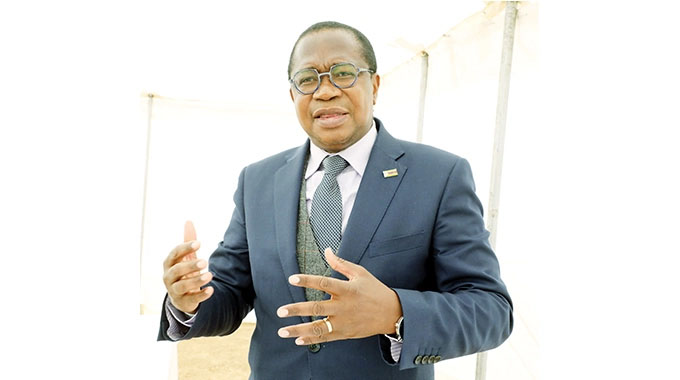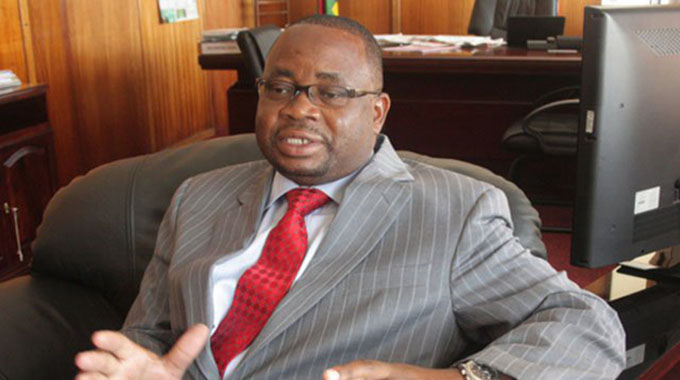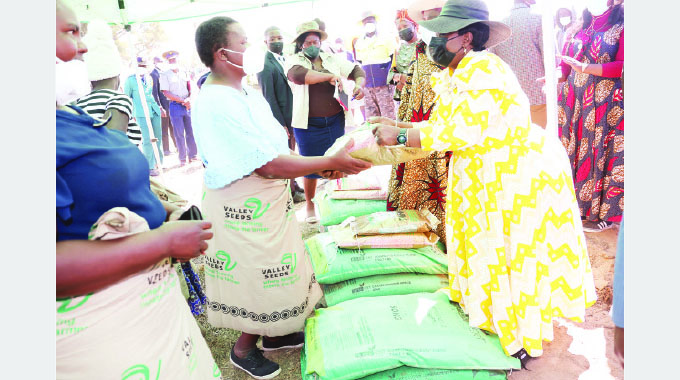Finance Minister presents mid-term budget review today

Oliver Kazunga-Senior Business Reporter
Today sees the mid-term budget review when Minister of Finance and Economic Development Mthuli Ncube details how Government revenue and spending have been matching his budget approved at the end of last year and looks at what changes might be necessary for the second half of the year.
The review often outlines other economic indicators, such as the current account, which looks at foreign currency inflows and outflows, inflation rates, exchange rates and the like but the main factor that is critical is the degree of fiscal discipline exercised by the Treasury, ensuring that any borrowing has remained within the small limits imposed by the budget, and basically only for capital spending where there is an immediate return in extra revenue.
The minister will almost certainly be showing how his large capital-spending programme in the budget has been progressing, progress on infrastructure and the like, and will look at how the general administrative machinery has been working with details of revenue collection and details of how that revenue was spent.
Inflation at present rates could well require a degree of resetting of the figures so like is compared to like.
The review also offers the option of a supplementary budget, and the opportunity to see if tax brackets, from the zero percent band, that tax free $25 000 a month, upwards could be adjusted to take into account the inflation seen so far this year since the last tax review.
As is always the case there are pressures from many quarters. Although fuel prices are now falling, the latest fall coming into effect today, there are those who want to see duties on fuel reduced further than the reductions already affects when the Government was battling to stabilise prices as global demand rose rapidly
The Confederation of Zimbabwe Industries (CZI) president Mr Kurai Matsheza is one of these.
Mr Matsheza, like many others, wants money transfer tax reduced. At best on past performance they could see the exemption band widened moderately to protect the lowest paid, but the tax is a consumption tax that is exceptionally easy and cheap to collect, done automatically by the 16 banks and three mobile payment systems. It is also one of the few ways that the informal sector can be taxed.
Chamber of Mines of Zimbabwe president Mr Isaac Kwesu ws more subtle, wanting the transaction tax deducted from the corporte tax or VAT paid by formal businessess.
The Zimbabwe National Chamber of Commerce (ZNCC) president Mr Mike Kamungeremu said the budget is expected to contain measures that enhance smooth running of businesses.
He wanted to see the Treasury going further than the Reserve Bank of Zimbabwe’s control of reserve money supply and ensuring that large one-off payments of local currency to Government contractors do not surprise the market by creating more money.
“However, the recently introduced gold coins can be a good alternative to the US dollar in terms of value preservation,” he said. Selling of the gold coins started on Monday this week.
The ZNCC president said it was their expectation that Prof Ncube would remove all levies on fuel, particularly petrol similar to what he did last month on diesel and also reduce the import duty rate on both petrol and diesel.
At the end of June, the Government completely removed the levy on diesel or brought it to 0 cents and significantly dropped the levy on petrol, which has been brought down to 4,7cents.
Mr Kamungeremu said ZNCC expected the Government to introduce a zero percent tax, for a period of 10 years from the first year of commencement of operations in a multi facility economic zone or industrial park, on dividends declared on profits made on exports by companies operating in the economic zones.
“The incentives issue needs to be addressed to spearhead investment in SEZs,” he said.
National Consumer Rights Association spokesperson Mr Effie Ncube said the upcoming mid-term budget should seek to alleviate the tax burden on employees in order to increase the disposable incomes of consumers.
“This will spur spending and drive up economic growth. Secondly, the Minister must focus on job creation and the stabilisation of prices while also paying attention to increased budget to support infrastructure growth. Electricity and water supply should be prioritised,” he said.
An economic commentator Ms Chipo Mpofu echoed similar sentiments adding that the mid-term budget review should also look at widening the zero-tax band.
Presently, every formal working person is being taxed as salary increments have led them into higher tax brackets.
This then means that despite a salary hike, tax is still taking away a big chunk of workers’ incomes, leaving the working population beneficiaries with little to take home.
Mr Tapiwa Fungata from Epworth called for more funds to be channelled towards subsidised transport.
“Transport affects everything even the prices of goods in shops so the Government should have incentives in the transport sector and boost the Zupco fleet for citizens to travel at affordable fares,” he said.
Mr Tendai Muneri from Chitungwiza said: “They should find a way to stabilise our currency and ensure prices are kept low.”








Comments